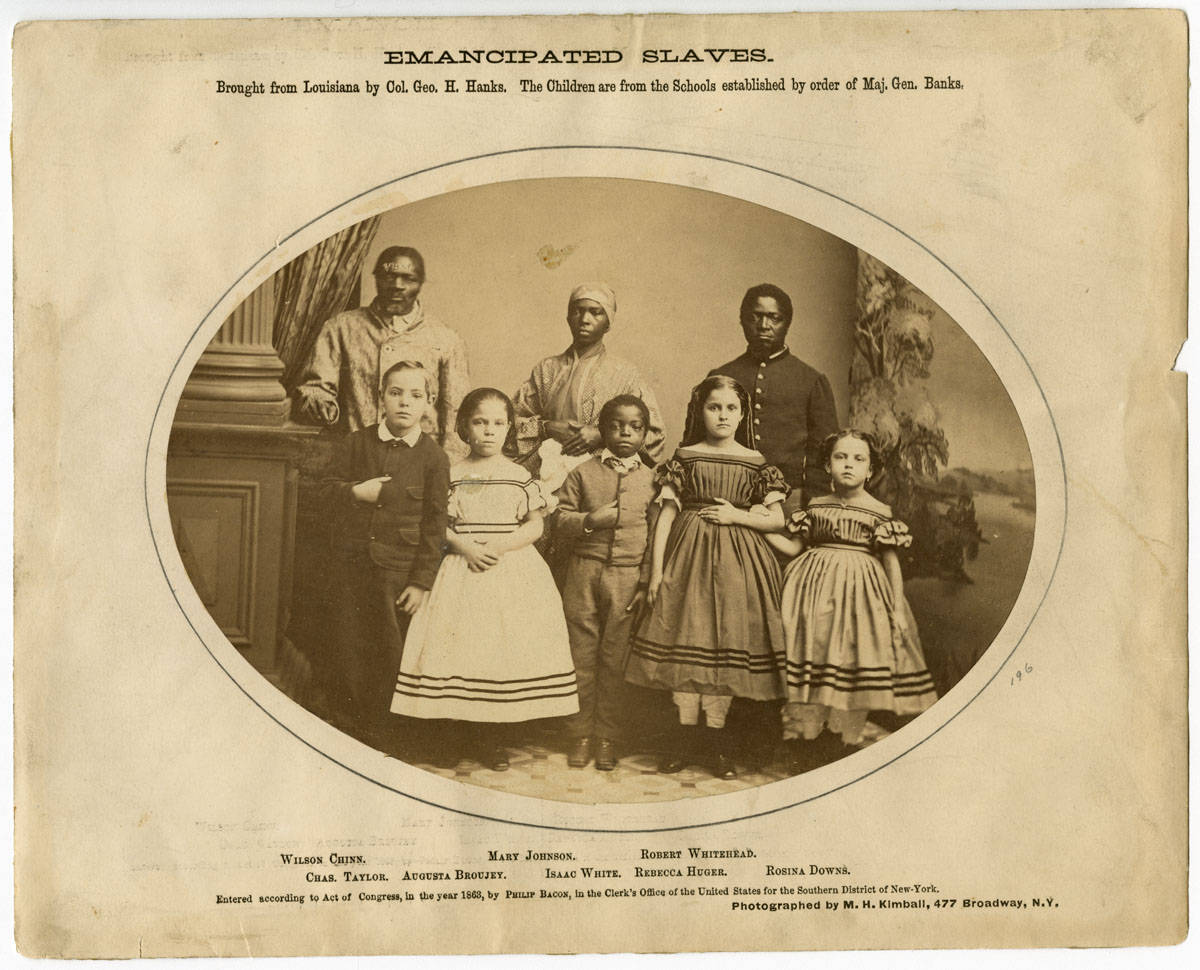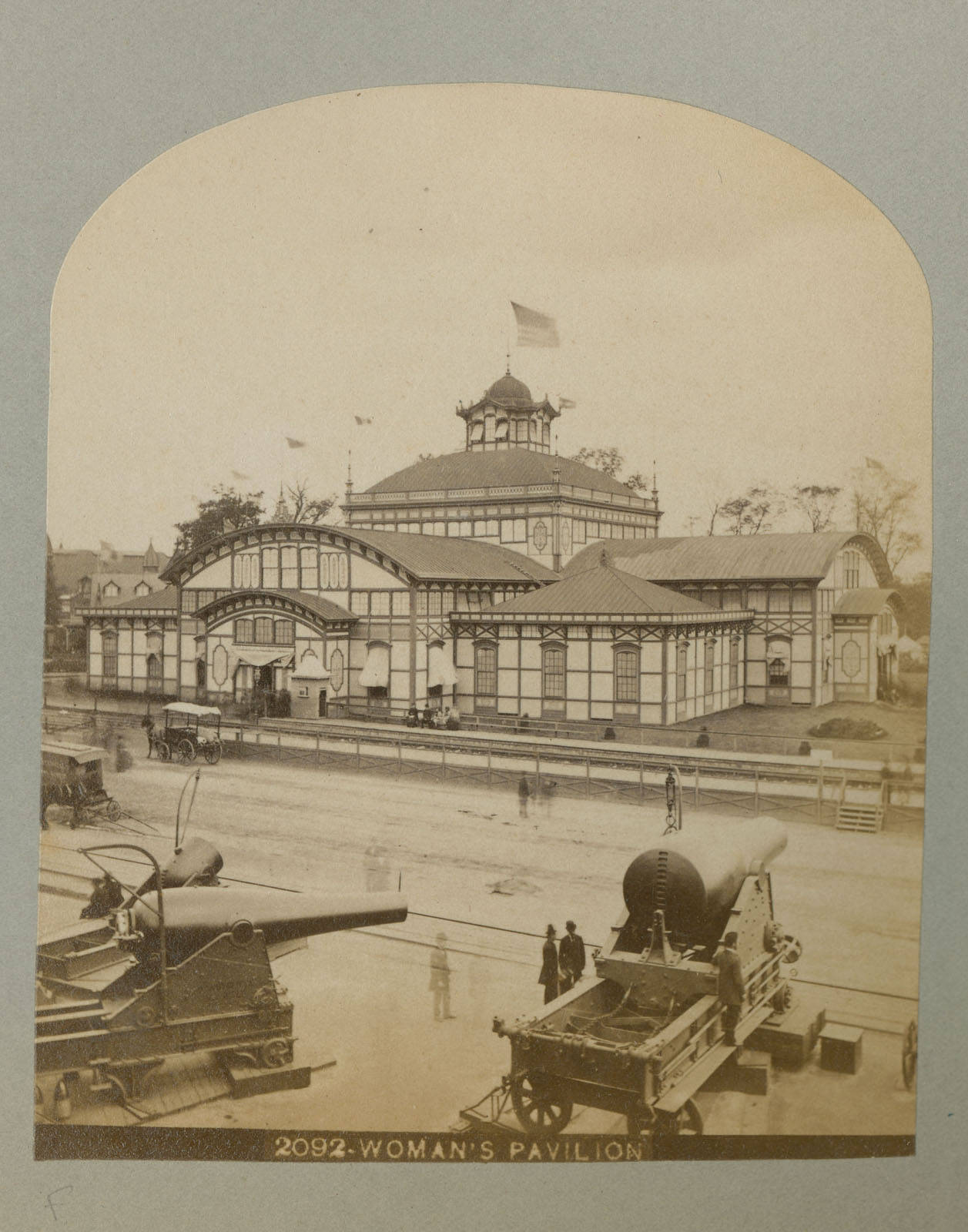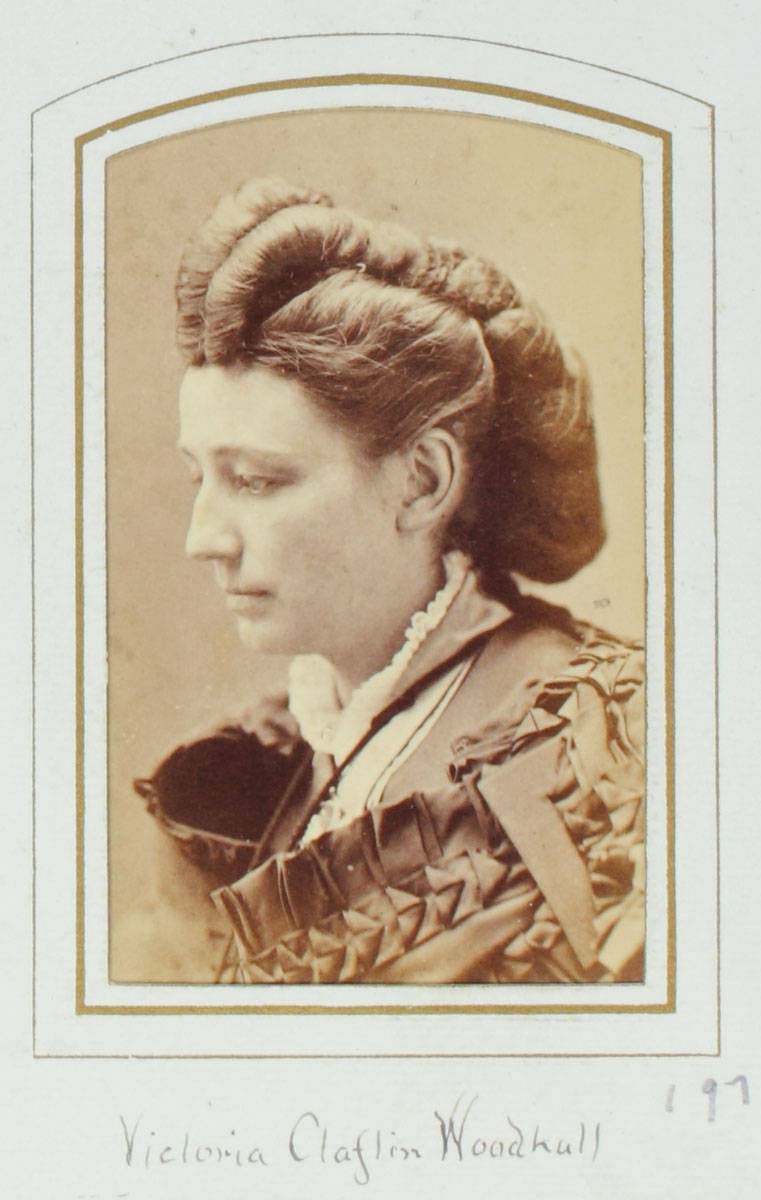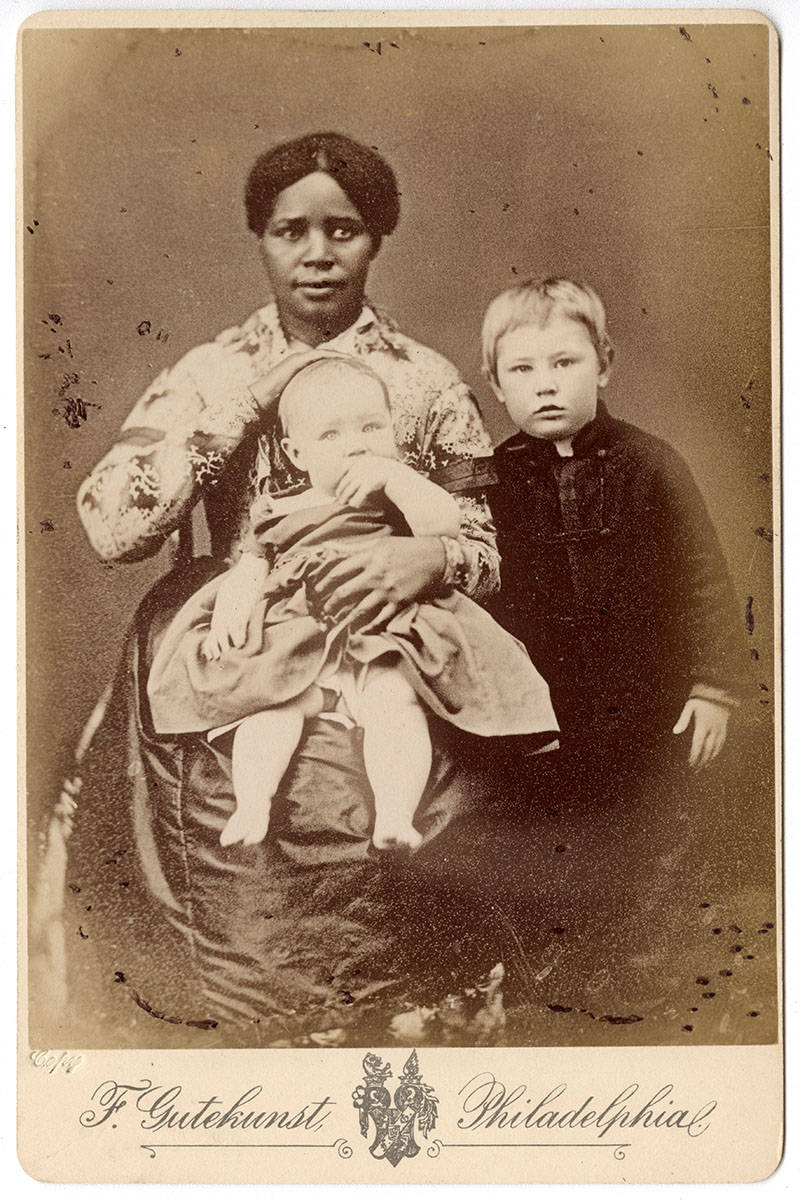Seminar Outline: Week 3
Emancipated slaves. In Harper’s Weekly, January 30, 1864.
Women’s Pavilion. Centennial Photographic Co. 1876. Albuman print.
Woodhull, Victoria Claflin. (1880). Albumen Print.
Copy photograph of African American nanny with her young white charges, F. Gutekunst. (Philadelphia: 1880). Albumen print.
The Civil War, slave emancipation, and Reconstruction forced the nation to rethink and literally reconstruct its commitment to the ideals of independence. At the same time, these years offered distinctive challenges to American women. The third week of this seminar will address the opportunities and crises that confronted white and black women during the Civil War and Reconstruction. Women who passed as men to fight in the war, women who confronted segregationist policies in Philadelphia, women who asserted their rights as full citizens in the newly-reformed republic, and women who worked in the expanded industrial economy all reshaped the conversation about independence itself. Readings will include excerpts from Judith Giesberg’s Army at Home, Chris Hayashida-Knight’s work on black women’s activism during the celebration of the Centennial in Philadelphia, and Hannah Rosen’s Terror in the Heart of Freedom. Primary sources range from the wartime diaries of an African-American woman in Philadelphia and of a female soldier to testimonies by newly emancipated African American women who expected to be heard by the federal authorities in the South. Documents about the Centennial Celebration of 1876, held in Philadelphia, will expose seminar participants to a wide range of women’s causes and concerns as the nation turned 100.
During the third week, Judith Giesberg, Professor of History at Villanova University, will offer an address on black women’s activism on the homefront during the Civil War. The week will include a private walking tour of “women’s industrial Philadelphia,” designed for us by Dr. Barbara Klaczynska, who specializes in the history of women and work in Philadelphia and is an expert in public history. The seminar’s end coincides with the opening of the annual convention of the Society of Historians of the Early American Republic, which takes place at the Doubletree Hotel, one block from the Library Company. Attendance (which includes a reduced fee for K-12 teachers) is optional, but registration on SHEAR’s site is required.
SCHEDULE AND READINGS
Monday:
Civil War: The Home Front
MORNING:
Judith Giesberg, Army at Home: Women and the Civil War on the Northern Home Front (2012) (excerpts)
AFTERNOON:
Primary documents:
Emilie Davis’s Diaries of a Free Black Woman in Philadelphia, 1863–1865 , ed., Judith Giesberg, transcribed and annotated by The Memorable Days Project
Sarah Rosetta Wakeman, An Uncommon Soldier (excerpts)
Tuesday:
Reconstruction: Are Freedom and Independence the Same?
MORNING:
Hannah Rosen, “’Not That Sort of Women’: Race, Gender, and Sexual Violence during the Memphis Riot of 1866,” in Martha Hodes, ed., Sex, Love, Race: Crossing Boundaries in North American History (1999), 267-293
Elsa Barkley Brown, “Negotiating and Transforming the Public Sphere: African American Political Life in the Transition from Slavery to Freedom,” Public Culture 7 (1994): 107-146
AFTERNOON:
Primary documents:
Hannah Johnson letter from Buffalo, N.Y., in Ira Berlin, et al., Freedom’s Soldiers: The Black Military Experience in the Civil War, pp. 105-108
Nancy Johnson’s Testimony before Southern Claims Commission, in Ira Berlin, et al., Free At Last
Tuston Testimony, Clay County (Florida) Archives, 1872
Wednesday:
Centennial Protests: Who is Celebrating What?
MORNING:
Chris Hayashida-Knight, “African-American Women’s Activism and Identity in Philadelphia, 1860-1880,” PhD dissertation, Penn State University (forthcoming), excerpts
Mary Frances Cordato, “Toward a New Century: Women and the Philadelphia Centennial Exhibition, 1876,” The Pennsylvania Magazine of History and Biography, 107, No. 1 (Jan., 1983), pp. 113-135
AFTERNOON:
Primary documents :
United States Centennial Celebration and the Declaration of Rights, Philadelphia, Pennsylvania, July 4, 1876
New Century for Woman (newspaper published summer of 1876 by Women’s Centennial Executive Committee)
http://gateway.proquest.com.ezaccess.libraries.psu.edu/openurl?url_ver=Z39.88-2004&res_dat=xri:gerritsen&rft_dat=xri:gerritsen:periodical:GP150.1
The Philadelphia Press, April 3, 1873
Christian Recorder, May 22, 1873
Thursday:
Women’s Work in Industrial Philadelphia
MORNING:
Daniel Sidorick, “The Girls’ Army,” Pennsylvania History 71
Documents from the Bryn Mawr Summer School for Women Workers papers
AFTERNOON:
WALKING TOUR OF WOMEN’S INDUSTRIAL PHILADELPHIA
Friday:
MORNING:
DISCUSSION OF FINAL PROJECTS.
Sharing sources and insights for teaching women’s history in the K-12 classroom
CLOSING LUNCH
FRIDAY AFTERNOON AND SATURDAY: SHEAR CONFERENCE AT THE DOUBLETREE HOTEL (optional but registration on the SHEAR website is required.)
Any views, findings, conclusions, or recommendations expressed in this program do not necessarily represent those of the National Endowment for the Humanities.





